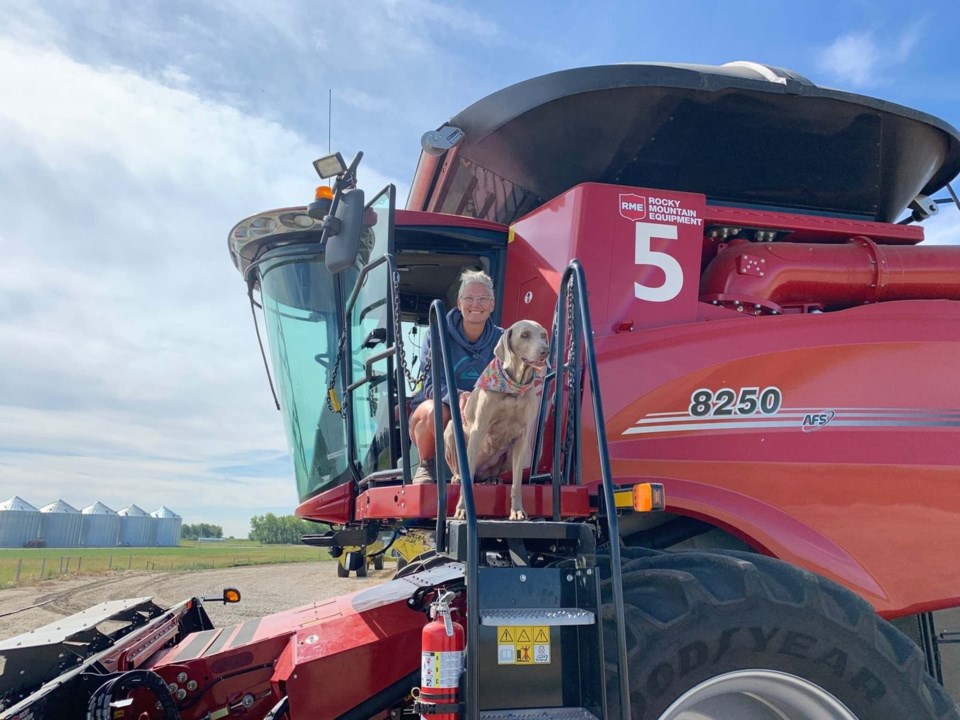Two tech-savvy farmers and an agricultural expert and retailer took part in a video-conference panel Thursday morning to discuss the state of farming in 2020 amidst COVID-19.
Denise Hockaday of The Climate Corporation — the creators of Climate FieldView, a farming platform that captures all the data of a farm’s operation — hosted the discussion.
"Having access to a digital ag platform has really proven to be even more valuable during a unique year like this one, where the pandemic has forced every interaction in agriculture to be reimagined," Hockaday said in her introductory remarks.
"We do see a role that we can play in supporting this new environment that we’re all living in and help farmers stay connected with what I like to call the ‘farm team.’"
Taya Page, who hails from a farming family near Boissevain and now farms with her husband at Altoba Farms near Strathmore, Alta., has been using FieldView since 2017. So has Riley Anderson, who farms with his family at Morris. They’ve both embraced the platform and say it has made their operations more efficient.
The panel consensus was that while the farming sector had been embracing technology, the realities of a pandemic-assaulted world plunged farmers more deeply into the digital realm.
"Our desire for social interaction would probably have slowed that down but, certainly, I think we would have gotten to this place eventually," said Sean Cochrane, part-owner of a seed, fertilizer and crop protection retailer in Winchester, Ont.
The three panelists spoke of more efficiently doing what would have typically been done hands-on or visually and in person.
"We can do things remotely, and we’re getting to that place faster as a result of COVID-19. I think it’s one of those positives that has come out of this," Cochrane said.
Anderson said the biggest silver lining amidst COVID-19 is the time he’s had to tighten up his data.
"Let’s say we had field reports that weren’t completely finished or soil tests we haven’t pulled into FieldView, we tightened that up," Anderson said.
"We were working from home and we were self-isolating and we had to make the data work for us now. We couldn’t just go see my dad or my employee and talk about it."
The FieldView platform records all the data to do with a farm operation, pulling data directly from the equipment, and is accessible from an iPad, smartphones and a desktop in the home. Every bit of the process, from sowing to harvesting, is tracked. The platform includes satellite imagery, weather information and analysis tools.
This provides farmers with the kind of information that adds precision to the operation, with better crop yields and increased profitability. The platform also allows a farmer to share select information with others working the farm, retailers and anyone else they choose.
"It’s a way more in-depth way of tracking data than we’ve ever had before. Before, it was a lot of manually entering what we ourselves were seeing into a program," Anderson said.
"If I can have information at my fingertips in pretty much real time, I should be able to make a better decision in real time."
"With the advent of new technologies, things like FieldView help us dig deeper into the personality of each field, track things better, like the more in-depth, creative things like taking time to create zones for soil testing and monitoring things like plots, keeping track where plots are and what the results are," Cochrane added.
For Page, one bonus of this technology means her employees, who may not know her fields, are in the know instead of having to eyeball features that might be in the way of a machine. It also allows tractor one to see what tractor two is doing, she said. Employees, as well as her husband Jeff, can view all that information from their phones.
"This is the tipping point of digital technology," Anderson said about a planting year living with COVID-19.
"It’s now become more normalized, where in the past a face-to-face meeting was necessary and a handshake was necessary to make a deal."
In the spring, he purchased a new machine over a meeting platform, where he had an in-depth conversation with the dealer and the owner.
Page, who grows approximately 11,000 acres of wheat, canola and barley, said farmers are destined to be "quarantiners."
"We spend hours and hours in our tractor as it is. I do feel our transition was very easy, not to belittle the pandemic at all. It really didn’t affect our day-to-day thing. Our small cohort group continued at the shop," she said.
On the downside, the Pages grow cerveza barley. Due the coronavirus, people stayed away from Corona beer. Her buyer, who makes Corona, wasn’t taking any of her barley.
"You saw these memes on the internet where the liquor shelves would be empty but there would be these cases of Corona because no one wanted it," she recalls.
"How is that a thing?"
Anderson grows corn, soybeans, canola, wheat and oats.
"This year I tried something new," he said. "I grew a large patch of sweet corn. I figured with COVID-19 and the lack of supply on the grocery store shelves there might be an opportunity for me to help out and make some income, as well."



